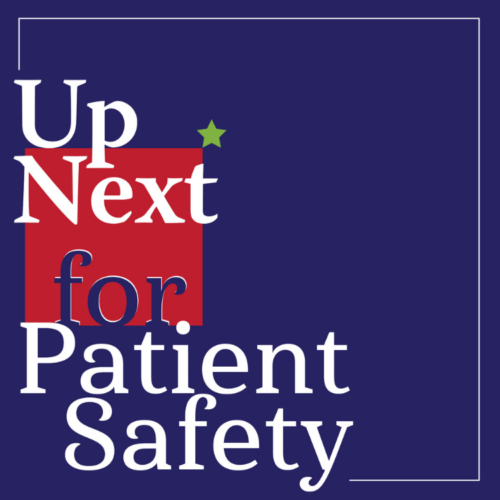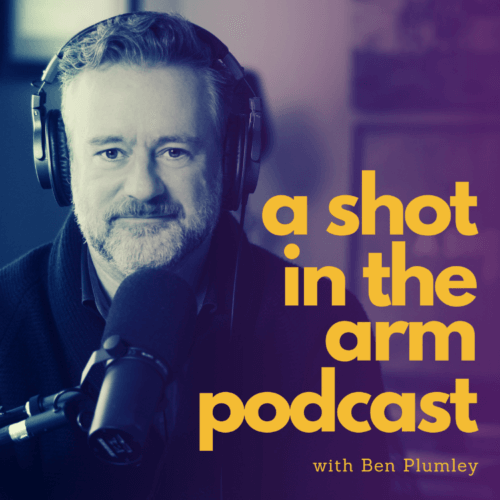
The Other 80
A podcast about how we build health - beyond medical care
Covered California: A Startup in Government with Dr. Monica Soni
California is full of hardworking people—nurses, teachers, delivery drivers, baristas—who keep our communities running. Many of them live paycheck-to-paycheck, making too much to qualify for most government benefits, but not enough to afford the basics. For nearly 2 million Californians, Covered California provides a critical lifeline, offering access to affordable health insurance and now basic needs support. Dr. Monica Soni, Chief Medical Officer of Covered California, joins Claudia to talk about the program’s important and expanding role in the California landscape. We discuss:What the working poor really need: breathing room in their budgets to afford healthy foodOperating a startup within governmentHow collaboration across Covered California, Medi-Cal and CalPERS – which together cover 45% of Californians – will drive faster and more aligned health improvement in CaliforniaMonica’s team uses experiments and user research to shape every aspect of the program:“But I do think in our DNA is this idea of innovation. In-house, we have a research team that does randomized controlled trials. We're committed to hyper transparency. Almost all of our data is released. We stratify it by everything we can think of to really identify where there might be pockets of coverage that aren't there or outcomes that are suboptimal. And we do a lot of deep listening with consumers and with the community to help inform what we do.“Relevant LinksRead more about Covered California’s Innovative Program to Improve Population HealthSee the details on Covered California’s Data and Research toolsAnnouncement of the launch of Covered Californians Population Health InvestmentsMore info on how Covered California uses email nudges for enrollmentAbout Our GuestDr. S. Monica Soni is the Chief Medical Officer, and a Chief Deputy Executive Director at Covered California, leading the organization’s Health Equity and Quality Transformation division. In this capacity she is responsible for health equity, health care strategy, medical policy, and other clinical operations to continuously improve not only the health services provided through Covered California’s contracted health plans, but also California’s delivery system.She is a board-certified internal medicine physician with more than a decade of experience working in both inpatient and outpatient settings and continues to see patients. She is an Associate Professor within the UCLA Department of Medicine and the Charles R. Drew University Department of Internal Medicine, where she is committed to residency diversification and pipeline development.Prior to joining Covered California, Dr. Soni served as Associate Chief Medical Officer within Evolent Health focused on the delivery of high-quality, cost-effective specialty care for the over 16 million supported Medicaid lives across the United States. During her time at the organization, she played a critical role in clinical informatics, provider engagement, value-based strategies and innovation. Dr. Soni also served as the Director of Specialty Care for the Los Angeles County Department of Health
April 23, 2025
Health Interrupted: The Stories of Six Recently Fired Federal Workers
In the wake of massive layoffs at HHS - and so many other federal agencies and programs - we are sharing the powerful stories of federal workers who had no choice but to leave their important work when they were fired post-election. You’ll hear from a former marine who was improving primary care for fellow veterans, a child of farmworkers who was expanding economic opportunities for rural communities and a technologist who was improving the organ transplant distribution system. They used their exquisite talents to help communities thrive and connect people with care they desperately needed. And now they aren’t.Relevant LinksIf you’re interested in hiring one of the amazing leaders who shared their story in this episode, connect with them on LinkedIn:Andrew Lennox: https://www.linkedin.com/in/andrewlennoxmi/Aileen Wood: https://www.linkedin.com/in/aileen-wood-163585108/Jesus Morillo: https://www.linkedin.com/in/jesusmurillo97/Amy Paris: https://www.linkedin.com/in/amy-paris-4950831/Ashley Hackett: https://www.linkedin.com/in/ashley-hackett/Jennifer Robinson: https://www.linkedin.com/in/jennifer-robinson-phd-mph/Connect With UsFor more information on The Other 80 please visit our website - www.theother80.com. To connect with our team, please email claudia@theother80.com and follow us on twitter @claudiawilliams and LinkedInSubscribe to The Other 80 on YouTube so you never miss our video extras or special video episodes!
April 9, 2025
Medicaid on the Brink with Katie Heidorn, Kody Kinsley & Larry Levitt
With Congress approving a plan to slash $880 billion from the federal budget, all eyes are turning to Medicaid as the most likely source of cuts. I asked Former North Carolina Health Secretary Kody Kinsley, KFF’s Larry Levitt and California Health Care Foundation’s Katie Heidorn to join me to discuss the likely shape and impact of proposed cuts, and take questions from UC Berkeley students. Kody called it a “self-licking ice cream cone”—cuts that destabilize the government, leading to further cuts. Larry warned of formula battles that will soon erupt. Katie laid out the devastating effects on state budgets.We’ve also released this episode as a full video episode on YouTube. Subscribe to The Other 80 YouTube channel for video extras, video episodes and viral healthcare policy content. Click here to watch this episode in full. Relevant LinksKFF: The Public’s View on Potential Changes to MedicaidKFF: Impact of Medicaid Per Capita Cap Kody Kinsley testimony to Congress on MedicaidPre-election episode with Larry LevittKFF: Can Republicans cut $880 Billion without Slashing Medicaid?CBPP: Impact of Medicaid CutsCHCF: Defending Medi-Cal in 2025About Our GuestsKatie Heidorn is the director of state health policy at CHCF, where she leverages the foundation’s data, expertise, and partnerships to help California’s state government make informed decisions about health care. Katie is based in CHCF’s Sacramento office.Katie has nearly two decades of experience working in health policy, government, and nonprofits and is a skilled leader, facilitator, and communicator. She comes to CHCF after more than two years as executive director for the Insure the Uninsured Project (ITUP). Before that, Katie was the government affairs advocate for Health Net and the development director and policy lead at the nonprofit California Coverage and Health Initiatives. Katie spent a decade in California state government, including as a deputy secretary for the California Health and Human Services Agency and principal consultant in the Senate Appropriations Committee. She is also an alumna of the California Senate Fellows Program.Katie received her master’s degree in Public Administration from the University of Southern California and bachelor’s degree in Biochemistry and Molecular Biology and Comparative Literature from the University of California, Davis.Source: https://www.chcf.org/person/katie-heidorn/Kody Kinsley served as Secretary of the North Carolina Department of Health and Human Services from January 2022
March 26, 2025
The Empire State’s Big Bet with Amir Bassiri
New York Medicaid has made some big bets on social care recently, and Amir Bassiri is here to answer all our questions. The bold new program centers on nine new regional networks that will be hubs for community organizations offering housing, food and other services. Will this program survive the new administration? Only time will tell. We discuss:The state's ambitious plan to screen every Medicaid enrollee for health-related social needsHow their approach differs from the social care strategies in NC and CAThe ticking clock: New York's critical three-year window to demonstrate cost savings and improved care outcomesAmir says he’s hoping negotiating with the Trump administration goes better than last time:“We will have to negotiate our demonstration or the renewal of our demonstration with the current administration. The waiver does expire in 27. We have to renew it beginning one year prior to its conclusion, which means we will be negotiating with the Trump administration on our waiver. We've done that before, it did not work out well. “Relevant LinksWatch Amir’s talk at the 2024 Medicaid Conference Get more background on 1115 waivers Read more information about New York’s 1115 waiverAbout Our GuestAmir Bassiri, MSW (he, him, his) is the Medicaid Director for the New York State Department of Health. Mr. Bassiri joined the Department of Health in 2019 as Chief of Staff to the Medicaid Director and recently served as the Deputy Medicaid Director, overseeing the operation and performance of nine Medicaid Divisions. Collectively, these nine Divisions are comprised of more than 750 State staff, over 500 contracted staff and management of over 300 contracts, including some of the State's largest technology, actuarial and financial audit contracts, along with health plans.Prior to his work with the Department, Mr. Bassiri worked as a Senior Policy Advisor for Health in the Governor's Office under the Deputy Secretary of Health and Human Services.Mr. Bassiri earned his BA in both Economics and Psychology from the University of California, Davis, before earning a Master's in Social Work (MSW) from Columbia University.Connect With UsFor more information on The Other 80 please visit our website - www.theother80.com. To connect with our team, please email claudia@theother80.com and follow us on twitter @claudiawilliams and LinkedIn
March 12, 2025
Car Sick with David Zipper
Driving fast on the open road is almost as American as apple pie. We all remember the thrill of our first car - a symbol of American freedom and independence. But is our love affair with cars killing us? David Zipper joins us to talk about the wide ranging health impacts of our car obsession, and how policy innovations like congestion pricing and weight-based taxes could offer a way out. We dive into:Why pedestrian deaths are much higher in the US than Canada The successful, but potentially short-lived, NYC experiment with congestion pricingHow SUVs have replaced sedans as the family vehicle, creating dangers for other drivers and pedestriansHow Eisenhower’s vision of interstates connecting US cities got turned aroundDavid says it’s time to focus on safety of those outside our vehicles, not just inside:“We have spent so much time over decades emphasizing the safety of those inside a vehicle that we have… basically enabled the creation of these Goliaths of SUVs and trucks on our roads, where the marginal size provides maybe an incremental marginal safety benefit for occupants, but at an enormous cost to everybody outside of that huge car... We have… recently hit a year high for pedestrian and cyclist deaths in the US… If I were to rewrite Nader's book, like still unsafe at any speed, I would put much more of the focus on the safety of those outside the car as opposed to occupants.”Relevant LinksLearn more about the MIT Mobility InitiativeVisit David Zipper’s websiteRead articles by David Zipper:In Vox (“Gigantic SUVs are a public health threat. Why don’t we treat them like one?”), Slate (“There is no technology fix for car bloat”) and Fast Company (“Who’s really to blame – and who isn’t – for America’s traffic death epidemic”). About Our GuestDavid Zipper is a Senior Fellow at the MIT Mobility Initiative, examining the intersection of transportation policy, technology, and society. With experience in city government, venture capital, and consulting, he advises public agencies and foundations on improving transportation outcomes. A contributing writer for Vox and Bloomberg CityLab, his work focuses on road safety, climate change, and transit strategies. He previously served in leadership roles in Washington D.C. and New York City, and holds degrees from Harvard, Cambridge, and Swarthmore.Stay InformedSign up for The Other 80 Newsletter to receive a monthly update with reflections, news, events, jobs and funding curated for you by Claudia. Click here to sign up.Connect With UsFor more information on The Other 80 please visit our website - www.theother80.com. To connect with our team, please email claudia@theother80.com and follow us on twitter @claudiawilliams and
February 26, 2025
The Secret Life of Caregivers with Alexandra Drane
An incredible 43% of Americans are unpaid caregivers, who are often alone with the burden and blessing of caring for their loved ones as life begins and in the complex and heartbreaking final days. Studies show their mental health is suffering – 52% of “sandwich generation” caregivers report that they have actively thought about suicide in the last 30 days. Alexandra Drane, CEO of ARCHANGELS, joins us to talk about the urgent need for culture and policy change to see, honor and support unpaid caregivers. We discuss:The huge and mostly unseen toll of unpaid caregivingEngage With Grace, the national movement Alex launched to talk about deathWhether “hospital at home” is a boon or a curse for family caregiversAlex reminds us to reach out to caregivers in our lives:“And most importantly, unpaid caregivers are drowning, right? Don't wait for them to ask for help .. Don't say, “How can I help you”? Because they're too tired. Oh, well, just freaking help fill their fridge, mow their lawns, sit with their mom, whatever it takes.”Relevant LinksRead more about Alex’s venture ARCHANGELS See data on caregivers from The COPE Initiative Learn more about the movement Alex founded called “Engage With Grace” See information on the Care Badge About Our GuestAlexandra Drane is co-founder and CEO of ARCHANGELS, a national movement and a platform that is reframing how caregivers are seen, honored, and supported using a combination of data and stories, through public and private partnerships. She co-founded Eliza Corporation (acquired by HMS Holdings Corp: HMSY), Engage with Grace, and three other companies (all boot-strapped). A serial entrepreneur, she is also a cashier-on-leave for Walmart. She believes communities are the frontline of health, that caregivers are our country’s greatest asset, and that we need to expand the definition of health to include life. She has one hobby outside of her passion for revolutionizing health care, and her love of family and adventure…car racing.Stay InformedSign up for The Other 80 Newsletter to receive a monthly update with reflections, news, events, jobs and funding curated for you by Claudia. Click here to sign up.Connect With UsFor more information on The Other 80 please visit our website - www.theother80.com. To connect with our team, please email claudia@theother80.com and follow us on twitter @claudiawilliams and LinkedIn.
February 12, 2025
Transforming Primary Care with AI with Dr. Kameron Matthews
If AI is going to rapidly improve healthcare, shouldn’t we start at the ground floor - with primary care? Cityblock’s Chief Health Officer Dr. Kameron Matthews joins us to talk about how AI can reduce complexity and burnout, improve patient outcomes and free care teams to focus on human connections.We discuss:What it takes to design with and for the communities Her work with the Coalition for Health AI (CHAI) to drive the development, evaluation, and appropriate use of AI in healthcareLessons Kameron learned being a student leader for the National Medical AssociationKameron reminds us that we cannot just drop new technologies onto care teams:“We have respect for the change management that is required to bring forward these new technologies and allow our care teams to really merge them into their current day to day practice. It's not about, as we have seen for years with EHRs. It's not about just putting them through some horrible modular training, but about actually bringing them to a level of understanding and being a part of the decision making of how we're adopting this technology, how we're blending it into their day to day, how it's making their job easier.”Relevant LinksAbout CityblockCNBC Disruptor 50: Cityblock CEO breaks down the business of health careAt Cityblock Health, ‘Everything is Driven by Data’Tour for Diversity in MedicineCoalition for Health AI (CHAI)About Our GuestAs the Chief Health Officer at Cityblock Health, I lead the clinical strategy and operations for a rapidly growing company that provides innovative, personalized, and accessible care to individuals and communities with complex health and social needs. I bring over 15 years of experience as a board-certified family physician, a health policy expert, and a mentor to aspiring and practicing health professionals from diverse backgrounds.My mission is to transform health care delivery and outcomes for underserved populations by leveraging innovative operations, data, technology, and human-centered design. I have co-founded and directed Tour for Diversity in Medicine, a national initiative that educates and inspires future physicians, dentists, and pharmacists of color, and serve as a Health Innovators Fellow at the Aspen Institute, a prestigious program that fosters entrepreneurial and values-driven leadership in health care. I have been elected to the National Academy of Medicine, the highest honor in the field, and served as a senior executive at the U.S. Department of Veterans Affairs, where I oversaw the largest integrated health care network in the country in the Office of Community Care and later served as Chief Medical Officer of the health system. I am passionate about advancing health equity, quality, and innovation, and empowering the next generation of health care leaders.Source: https://www.linkedin.com/in/kameronmatthews/Stay InformedIf you enjoyed this episode, subscribe to The Other 80 for more conversations on equity,...
January 29, 2025
Hard and Soft Powers with Micky Tripathi
For the past 20 years, under both Republican and Democratic administrations, the ONC has played a pivotal role shaping and regulating the health tech market. On the eve of the election, Micky Tripathi joined me to discuss the agency’s recently expanded role. Now, two months later—though it feels like a decade—the future is uncertain. Will the ONC and ASTP continue as market regulators and opportunity catalysts, or is a new direction on the horizon?Here’s what we covered:The government’s role in shaping and regulating the health tech ecosystemAI in healthcare: balancing the risks of misuse vs. the risk of “missed uses” Health information sharing: why Micky is optimistic about the future Can technology take the pain out of prior auth?Micky thinks we are standing on the edge of a transformative era:“We are just at the beginning of the most exciting decade...health information technology can really start to show… the return on investment for patients. We've done a lot of hard work over the last 10 years… [With that foundation in place] we have the opportunity to say there's an ROI here for patients.”Relevant LinksBlog post on ONC reorganization: ONC’s Next ChapterTEFCA overviewForbes interview: Where is interoperability headed?Healthcare Dive: HHS AI Task Force Takes Shape (March 2024)Blog post by Micky: Getting real about information blocking and APIs (October 2024)About Our GuestMicky Tripathi is the Assistant Secretary for Technology Policy, National Coordinator for Health Information Technology, and Acting Chief Artificial Intelligence Officer at the U.S. Department of Health and Human Services, where he leads the formulation of HHS technology and data strategy and coordinates technology policies, standards, programs, and investments.Dr. Tripathi has over 20 years of experience across the health IT landscape. Prior to joining the federal government he served as Chief Alliance Officer for Arcadia, a health care data and software company focused on population health management and value-based care, the project manager of the Argonaut Project, an industry collaboration to accelerate the adoption of FHIR, and a board member of HL7, the Sequoia Project, the CommonWell Health Alliance, and the CARIN Alliance.Dr. Tripathi served as the President and Chief Executive Officer of the Massachusetts eHealth Collaborative (MAeHC), a non-profit health IT advisory and clinical data analytics company. He was also the founding President and CEO of the Indiana Health Information Exchange, a statewide HIE partnered with the Regenstrief Institute, an Executive Advisor to investment firm LRVHealth, and a Fellow at the Berkman-Klein Center for Internet and Society at Harvard University.He holds a PhD in political science from the Massachusetts...
January 15, 2025
The Other 80
The Other 80 podcast — brought to you by Claudia Williams at UC Berkeley School of Public Health — hosts real, honest dialogue about the things that help keep people healthy beyond traditional medical care, like housing, social connections and food, and the cutting edge policies, research and programs supporting whole person health.
Join former White House advisor, entrepreneur and host Claudia Williams for deep conversations with the innovators, implementers, researchers and policymakers bringing these new models to life. We’ll talk about what’s working, what’s not and how to move towards whole person health rapidly and equitably across the US.
Join former White House advisor, entrepreneur and host Claudia Williams for deep conversations with the innovators, implementers, researchers and policymakers bringing these new models to life. We’ll talk about what’s working, what’s not and how to move towards whole person health rapidly and equitably across the US.
Host

Claudia Williams
Claudia Williams is a healthcare visionary, team builder and seasoned operator with a deep understanding of new opportunities in the Medicaid space, experience scaling organizations, expertise in data and technology, and ability to navigate complex policy environments. She can accelerate progress and add value quickly for any organization looking to make an outsize impact on health based on her unique combination of business acumen, strategy and policy expertise, technology skills and passion for Medicaid and public health. From her time at the White House to growing Manifest MedEx in California, she has worked with incredible teams fixing healthcare’s most fundamental problems.
Claudia has shared insights at HLTH, ViVE, HIMSS, SXSW, White House Champions of Change, FORTUNE Brainstorm Health, FasterCures, Health Datapalooza and on her podcast -- www.theother80.com.
Areas of Expertise: Healthcare Transformation, Building Coalitions, Strategy, Innovation, Digital Health, Medicaid, Leading People, Leading Change, Business Development, Government Relations, Healthcare Policy, Scaling Companies, Public Speaking, Health Equity, Health IT, Health Data Analytics, Social Determinants of Health, Board Management, Strategic and Board Advising, Regulatory Strategy
Claudia has shared insights at HLTH, ViVE, HIMSS, SXSW, White House Champions of Change, FORTUNE Brainstorm Health, FasterCures, Health Datapalooza and on her podcast -- www.theother80.com.
Areas of Expertise: Healthcare Transformation, Building Coalitions, Strategy, Innovation, Digital Health, Medicaid, Leading People, Leading Change, Business Development, Government Relations, Healthcare Policy, Scaling Companies, Public Speaking, Health Equity, Health IT, Health Data Analytics, Social Determinants of Health, Board Management, Strategic and Board Advising, Regulatory Strategy






































